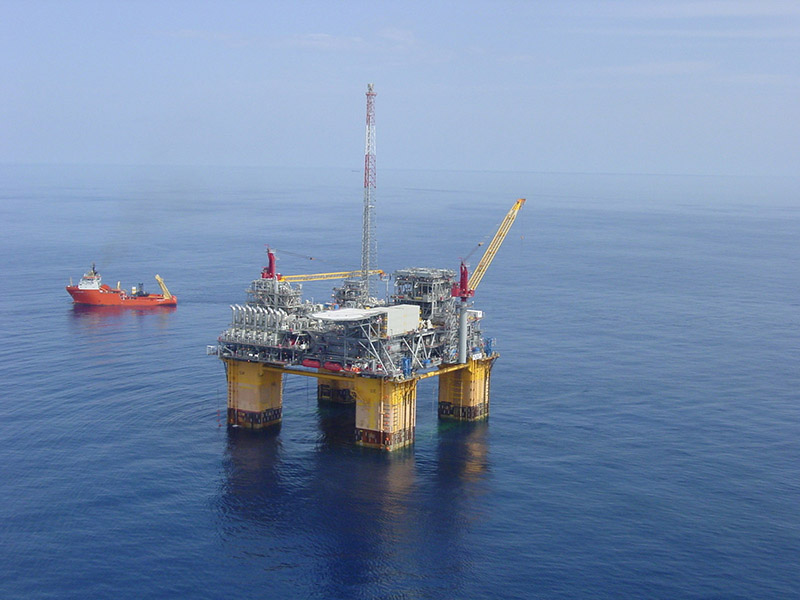(Bloomberg) — With Ryan Zinke at the helm, the Interior Department is set to prioritize coal, oil and natural gas development over renewable projects on federal lands and waters.
The Senate confirmed Zinke Wednesday on a 68-31 vote, putting a self-described "Teddy Roosevelt Republican" in charge of making decisions about where — and whether — to allow drilling and mining on U.S. public lands. Roughly 20% of the nation’s land is now under the watch of Zinke, a fifth-generation Montanan.
And at least one change could happen right away: President Donald Trump has vowed to lift an Obama-era moratorium on new sales of federally owned coal, and Zinke can rescind that ban by a secretarial order.
Barry Russell, head of the Independent Petroleum Association of America, said he was confident Zinke appreciates the need to accommodate both recreation and energy development on federal lands.
"While often pitted against each other over the last eight years, these efforts to support the economy and protect our environment work hand in hand every day across the country," Russell said in an email.
The Interior Department is on the front lines of Trump’s repeated pledge to expand U.S. energy development and remove "obstacles" to exploration. Under Zinke, the department is expected to begin rewriting a plan for selling oil and gas leases in U.S. waters to fold in Arctic and Atlantic acreage left out of the Obama administration’s sale schedule. It also may work to undo a last-minute decision by President Barack Obama to rule out future leasing in more than 100 million acres of the U.S. Arctic as well as undersea canyons in the Atlantic Ocean. The Interior Department will have to justify those policy reversals.
"Modifying a leasing program is a heavy political lift," said Kevin Ewing, a partner at Bracewell LLP. "It’s also a heavy legal lift because you need a record that fully supports the revision or the substitution you make."
No Republicans voted against his confirmation, and 17 Democrats joined them in voting for Zinke.
Democrats encouraged Zinke not to abandon a broad, underlying review of the federal coal leasing program that was designed to coincide with the moratorium. In January the Interior Department recommended further study of ideas for overhauling the way the U.S. sells coal on federal land, including proposals to embed carbon costs into leases and require companies pay into funds to help out-of-work miners.
At a confirmation hearing in January, Zinke promised to be a steward of the nation’s public lands and waters by responsibly balancing energy development, recreational activities and preservation. While some lands "deserve special recognition" and are best insulated from development, Zinke said, most federal holdings are better suited for an array of multiple uses.
Some Senate Democrats were not convinced. Washington state’s Maria Cantwell, the top Democrat on the Senate Energy and Natural Resources Committee, said she opposed Zinke because she didn’t think he’d be a check against Trump administration policies to expand energy development on public lands.
As Interior secretary, Zinke will be "required to manage our public lands for the benefit of all Americans — not just the oil, gas and mining companies and their commercial interests," Cantwell said. "I’m not sure he will be able to stand up to the president and protect the public interest."
An avid hunter and angler, Zinke, 55, has endorsed a permanent extension of the Land and Water Conservation Fund, which uses revenue from offshore oil and gas development to help states build outdoor recreational facilities and purchase new territory for recreation. He has emphasized the importance of rebuilding relationships with landowners and local governments in the West angry with federal management policies. And Zinke has said he wants to address a $12.5 billion backlog of maintenance needs in national parks.
A former member of the Navy’s elite SEAL Team Six, Zinke was awarded two Bronze Stars for missions in Iraq. After leaving the Navy, he was elected to represent his northern Montana home of Whitefish in the state Senate before ascending to Congress, where he was just re-elected for a second term.
"I received an assurance that as secretary of the Interior, Representative Zinke will focus on doing his job, which includes protecting our special places and managing the forests already within the Interior Department’s control, instead of engaging in senseless reorganization of bureaucracies," Senator Ron Wyden, an Oregon Democrat who voted for Zinke, said in a statement.
Bloomberg News by Jennifer A. Dlouhy and Ari Natter




